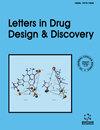生物活性天然铅和传统草药植物在炎症性肠病治疗中的应用综述
IF 1.6
4区 医学
Q4 CHEMISTRY, MEDICINAL
引用次数: 0
摘要
背景:炎症性肠病是一种慢性复发性疾病,可引起胃肠道慢性炎症和溃疡。根据不同的部位,溃疡性结肠炎和克罗恩病属于IBD。IBD的确切病因尚不清楚。每年有80多万人受到炎症性疾病的影响,死亡率每天都在上升。根据疾病的严重程度,JAK抑制剂、抗肿瘤坏死因子制剂和免疫抑制剂可用于治疗溃疡性结肠炎和克罗恩病。然而,这些治疗已经与有害的副作用相关联,这是不可忽视的。方法:为了安全治疗炎症性疾病,首选各种草药及其生物活性作为游戏规则的改变者。近年来,各种体内模型和临床试验表明,草药植物被推荐为治疗IBD的有效药物。文献中报道的各种草药植物包括没食子酸、鹿皮醇和姜黄素芦荟。结果:综述了药用植物的抗炎、抗氧化和抗溃疡特性。超过120万的医疗从业者正在使用草药生物活性,具有副作用低的优点。结论:因此,据估计,在欧洲,植物性产品/配方的需求在2020年将增加数百万,这显示了目前草药产品在消费者健康意识中的地位。本文章由计算机程序翻译,如有差异,请以英文原文为准。
Bioactive Natural Leads and Traditional Herbal Plants in the Management of Inflammatory Bowel Diseases: A Brief Review
Background: Inflammatory bowel disease is a chronic relapsing disorder that causes chronic inflammation and ulcers in the GIT. Depending upon the location, ulcerative colitis and Crohn's disease come under IBD. The exact etiology of IBD is still unknown. Over 8 lakhs of people were affected by inflammatory disease yearly, and the death rate increased daily. Depending upon the severity of the disease, JAK inhibitors, anti-TNF agents, and immunosuppressants can be used to manage ulcerative colitis and Crohn's disease. However, these treatments have been associated with harmful adverse effects, which cannot be ignored. Methods: To treat inflammatory diseases safely, various herbal medicines and their bioactive are preferred as game changers. Recently, the effectiveness of herbal plants has been recommended as the treatment against IBD, as shown by various in vivo models and clinical trials. The various herbal plants reported in the literature include gallic acid, lupeol, and curcumin aloe vera. Result: This review focused on medicinal plants' anti-inflammatory, antioxidant, and anti-ulcer properties. Over 1.2 million healthcare practitioners are using herbal bioactive and have the advantages of lower side effects. Conclusion: Therefore, it is estimated that in Europe, the demand for plant-based products/formulations has risen by millions in 2020, showing the current position of herbal-based products in consumer health awareness.
求助全文
通过发布文献求助,成功后即可免费获取论文全文。
去求助
来源期刊
CiteScore
1.80
自引率
10.00%
发文量
245
审稿时长
3 months
期刊介绍:
Aims & Scope
Letters in Drug Design & Discovery publishes letters, mini-reviews, highlights and guest edited thematic issues in all areas of rational drug design and discovery including medicinal chemistry, in-silico drug design, combinatorial chemistry, high-throughput screening, drug targets, and structure-activity relationships. The emphasis is on publishing quality papers very rapidly by taking full advantage of latest Internet technology for both submission and review of manuscripts. The online journal is an essential reading to all pharmaceutical scientists involved in research in drug design and discovery.

 求助内容:
求助内容: 应助结果提醒方式:
应助结果提醒方式:


